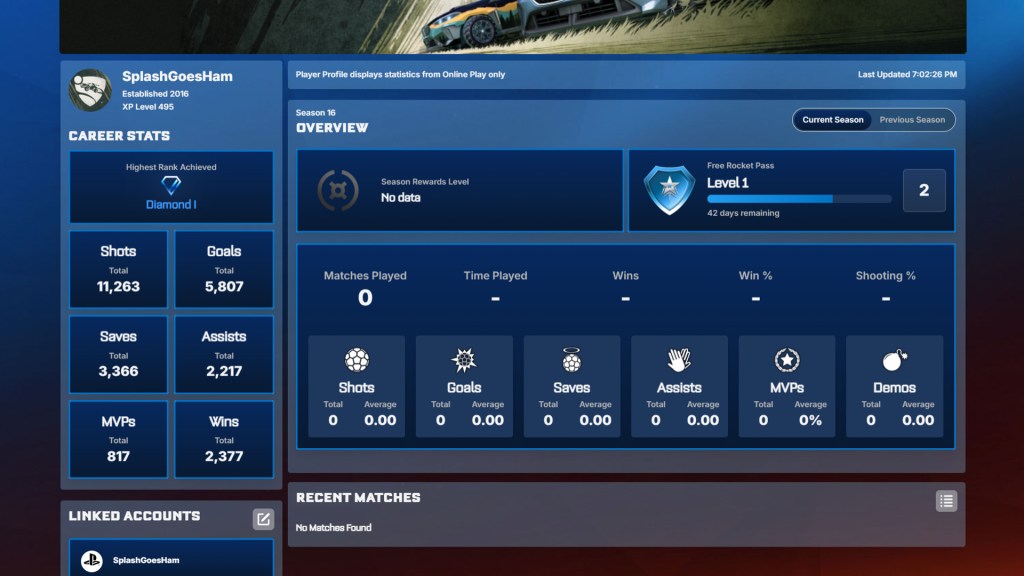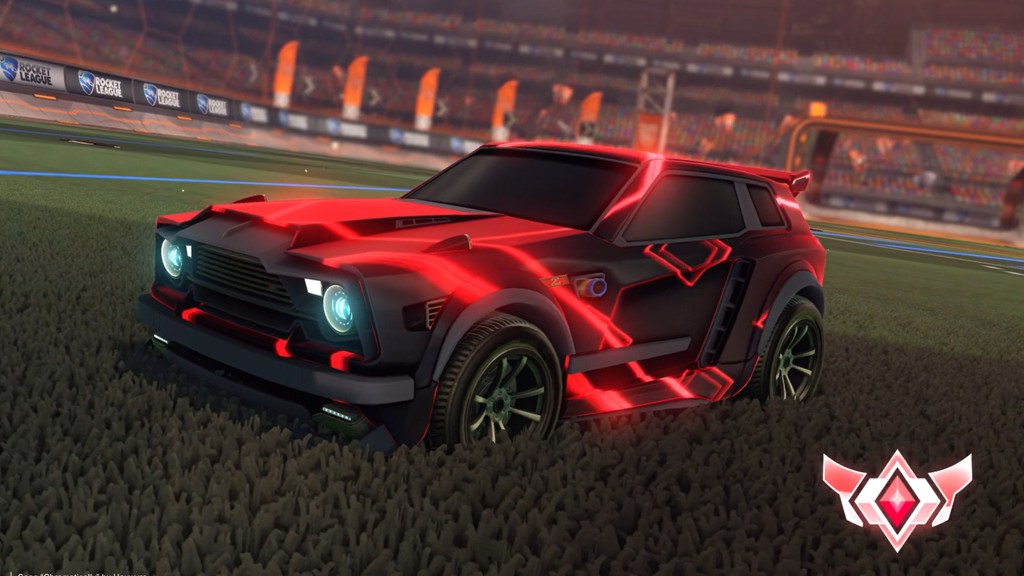The long-awaited Match History feature is now live in Rocket League, and it brought a full Player Profile page to the game along with it. Players can now check their personal stats, highest rank, current Ranked matchmaking rating, and more with this new arrival.
Videos by ComicBook.com
Tracking personal statistics was previously only possible via third-party data-scraping apps. Now, all it takes is signing into a brand new Epic Games tool and letting them do all the hard work.
The Player Profile page assembles all kinds of data. First, there’s career stats. Every shot, goal, save, assist, win, and MVP award in a player’s career are all tracked here and will update accordingly with in-game performance. All of this information can be found on the left-hand side of the page under the Career tab. It’s worth mentioning only Online stats are tracked, meaning shots taken in offline game-modes will not be counted towards official stats.

Next, there’s Seasonal tracking. This section only counts a players performance over the current season and the previous one, but it holds a ton of additional information – such as time played, shooting percentage, demos, Ranked season rewards and Rocket Pass progression.
This is also where players will find their Match History, which stores a record of every user’s most recent 20 games. There’s a 30-day time limit on the storage, which leaves plenty of time to hunt down results and review any useful match data before it gets purged from the system forever.
Under Match History, players can also control replay storage, saving in-game footage to their profile after getting out of a match. That means no more worrying about queuing a highlight to save while in the middle of a game or forgetting to download the replay before fast-quitting at the end.
As previously mentioned, Ranked fans have even more to celebrate. For those out of the loop, ranking up in Rocket League is tied to a players Matchmaking Rating (or MMR) – a hidden number which informs the game where someone belongs in terms of Ranked progress.
Every rank and tier (ex: Silver 1, Silver 2, etc.) is associated with a range of numbers within the MMR system. Generally, Bronze players have low MMR, and Supersonic Legends have high MMR.

Tracking an individual’s MMR is crucial to knowing exactly how close they are to ranking up. Anyone hoping to make the climb from Bronze to SSL would be well-suited to know how many games they need to reach the promotional threshold.
This also makes calculating the average MMR differential after a win or loss much easier, helping players at every rank see the direct effect of each individual match. In theory, this will make Ranked a smoother experience, and eliminate any head-scratching over why a win-streak didn’t boost a team into the next rank.
Though regular content updates have gone over well with the core audience, Epic Games has previously been lambasted for making big changes to Rocket League. However, this one was truly years the making, and should benefit the player base as a whole.








